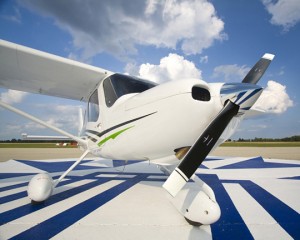 Stapleford Flight Centre is launching a residential ATPL theory course in partnership with ProPilot. The Essex-based flying school is in the process of renovating a Theoretical Training (TK) complex, adjacent to the simulator block at the airfield, to provide self-contained classrooms, offices and IT suite specifically for this project.
Stapleford Flight Centre is launching a residential ATPL theory course in partnership with ProPilot. The Essex-based flying school is in the process of renovating a Theoretical Training (TK) complex, adjacent to the simulator block at the airfield, to provide self-contained classrooms, offices and IT suite specifically for this project.
The launch was announced at Stapleford’s well-attended Open Day on 16 November. The first course will begin on Tuesday 4 March 2014. “This is a very exciting new development for Stapleford’s highly-regarded professional training programme,” says Head of Training, Colin Dobney.
“To coincide with this we will be offering an enhanced ab initio package which has all the benefits of the present package but with elements of competency-based training, including which is the future training under EASA.”
Stapleford Flight Centre has been associated with ProPilot for 18 months, since the demise of aviation courses at London Metropolitan University. ProPilot has purchased both Airbus and Boeing FTDs (Flight Training Devices) as well as programmable Honeywell FMC units to enrich their TK training through assimilation and application.
Colin explains the rationale behind the course development: “ProPilot’s course is markedly different from other European TK course providers, in that it focuses on education, understanding and application. We aim to train towards the knowledge skills and attitudinal skills needed for an airline pilot today.
“After the CPL/ME/IR the student will move onto a jet-based MCC course, followed by type rating preparation. The students use the Boeing and Airbus devices to cover such aspects as pre-start procedures, engine start procedures, FMC set-up, use and familiarisation, all items that are time-consuming and detract from efficient use of assets, such as FFSs (Full Flight Simulators), when completing an actual type rating course.
“We will be contacting various airlines to make them aware of this move forward as this should make prospective cadets more attractive to them as they will be easier to train in minimum hours.”
